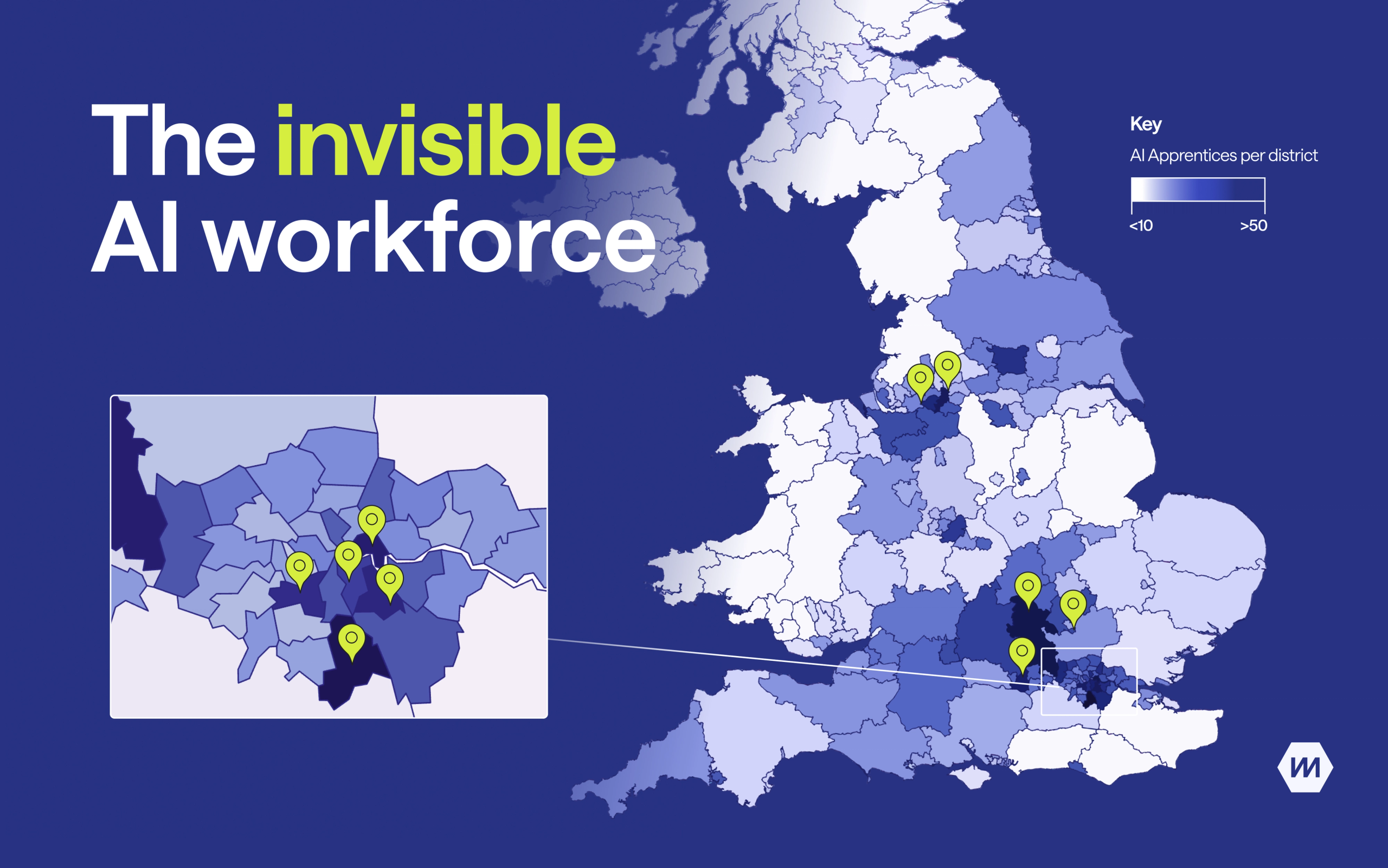New Multiverse analysis reveals over two-thirds of people applying AI at work are in roles not traditionally associated with tech, challenging the narrow definition of ‘AI talent’.
Data shows geographically and demographically diverse AI workforce, with apprentices aged 19 to 71 and hubs emerging in Trafford, Birmingham, Cheshire West and Chester.
The UK’s artificial intelligence workforce is not confined to tech hubs and software developers, according to new jobs analysis from Multiverse, the upskilling platform for AI and tech adoption. Instead, an “invisible” AI workforce of nurses, librarians, surveyors, and doctors spread across the country are powering the UK’s burgeoning AI revolution.
12 million people in the UK are in ‘high-risk' occupations projected to decline in the next ten years due to technological change(opens new window), according to the National Foundation for Educational Research. Reskilling opportunities, particularly in light of the UK’s aging population, must therefore be evenly distributed across the workforce to ensure everyone can benefit from AI’s productivity promise.
The analysis of over 2,500 people on Multiverse’s AI apprenticeship programmes reveals that over two-thirds (67%) are in non-tech roles - that is, roles whose job titles don’t include keywords related to tech, data and AI. Instead, among the 50 most common ‘invisible’ roles are frontline public service, education, healthcare and construction roles, including nurses, doctors, librarians, pharmacists, therapists, lecturers and surveyors.
Featuring in the full ‘invisible’ AI jobs list are occupations as varied as shipping clerks, biomedical scientists, charity fundraisers, creative directors, child protection workers, retail staff and merchandisers, tenancy managers, holiday let advisors – and even a herbarium curator.
The data underlines the fact that AI is rapidly being adopted in critical sectors far beyond the technology industry. Underlining this, the industries with the highest density of AI apprentices outside of those classified by the ONS as ‘digital industries’(opens new window) are Financial Services, Government Administration, Hospital & Healthcare, Higher Education, and Construction.
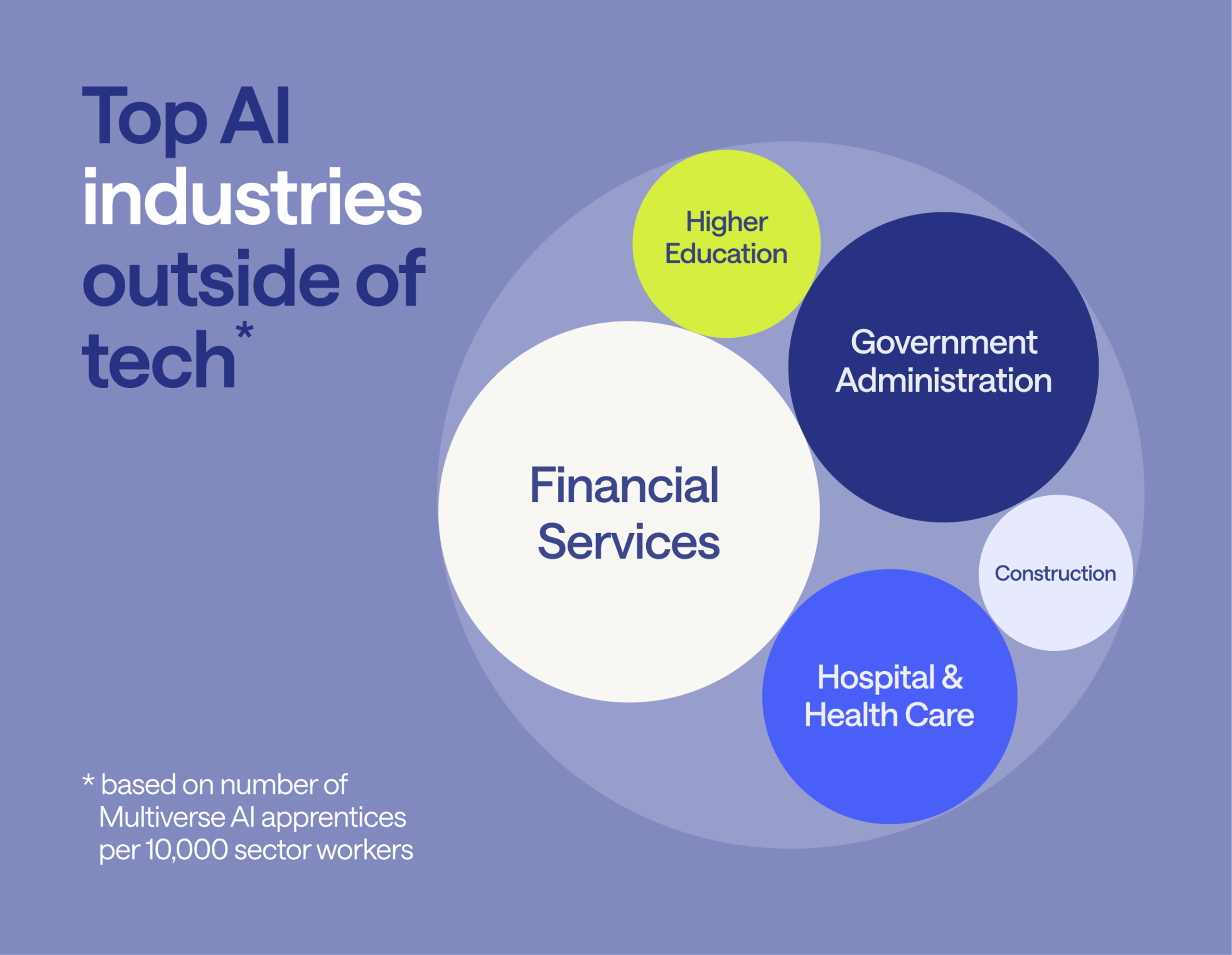
Euan Blair, Founder and CEO of Multiverse, said: "Clinicians and council workers are just as integral to driving AI adoption as software engineers and data analysts. They are the ones finding practical ways to apply this technology to real-world problems, yet they're often a second order consideration. The UK has all the ingredients to become the original AI-first nation but we can’t get there by restricting AI use to the tech department. Meaningful progress will only come from upskilling everyone.”
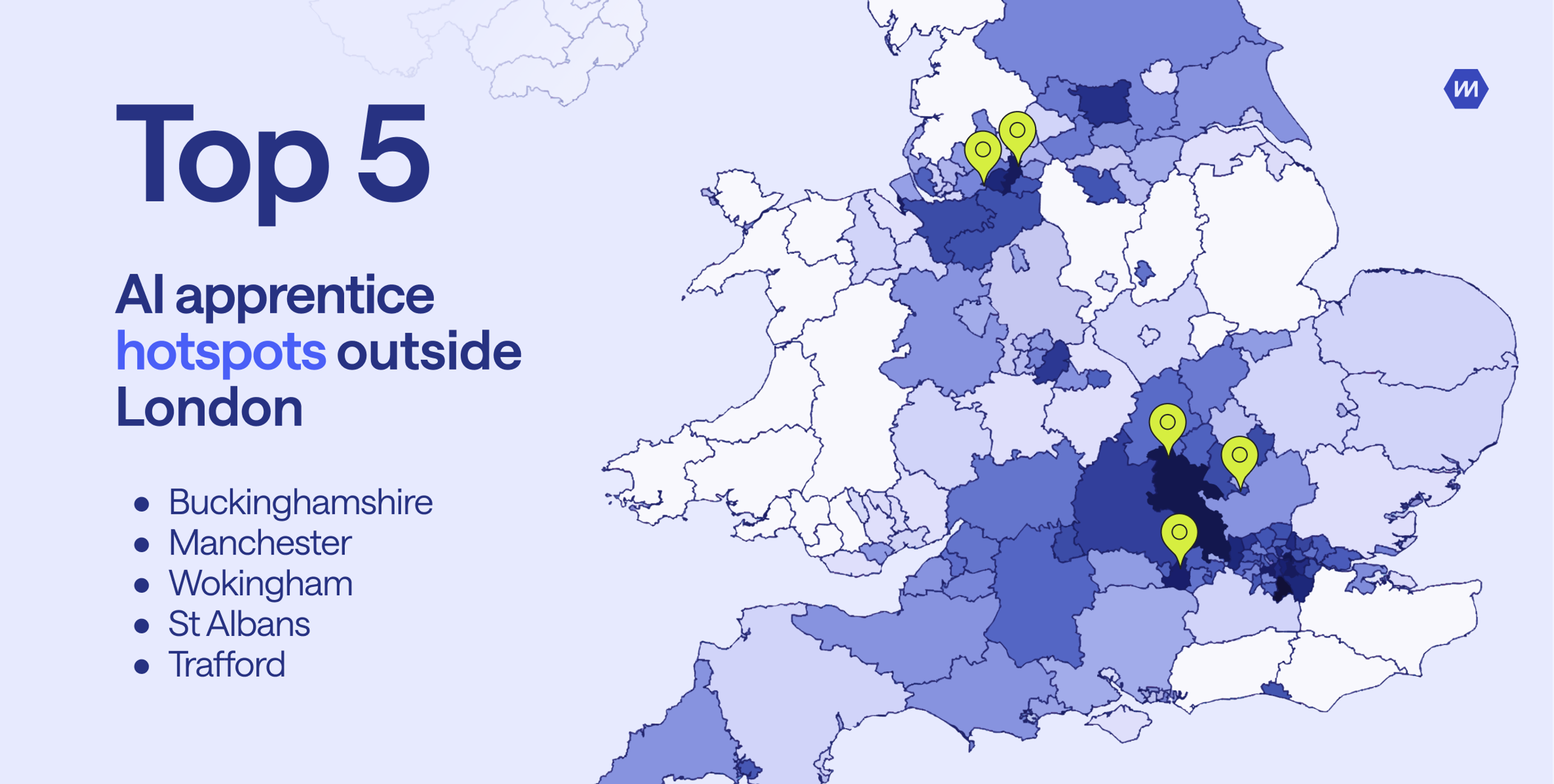
The analysis also maps the UK’s emerging AI hotspots, finding that while London remains a major centre, significant talent clusters are growing nationwide. The top ten districts with the most AI apprentices outside the capital include Trafford, Cheshire West and Chester, Leeds, and Birmingham. This geographic spread points to a democratisation of AI skills that is empowering regional economies.
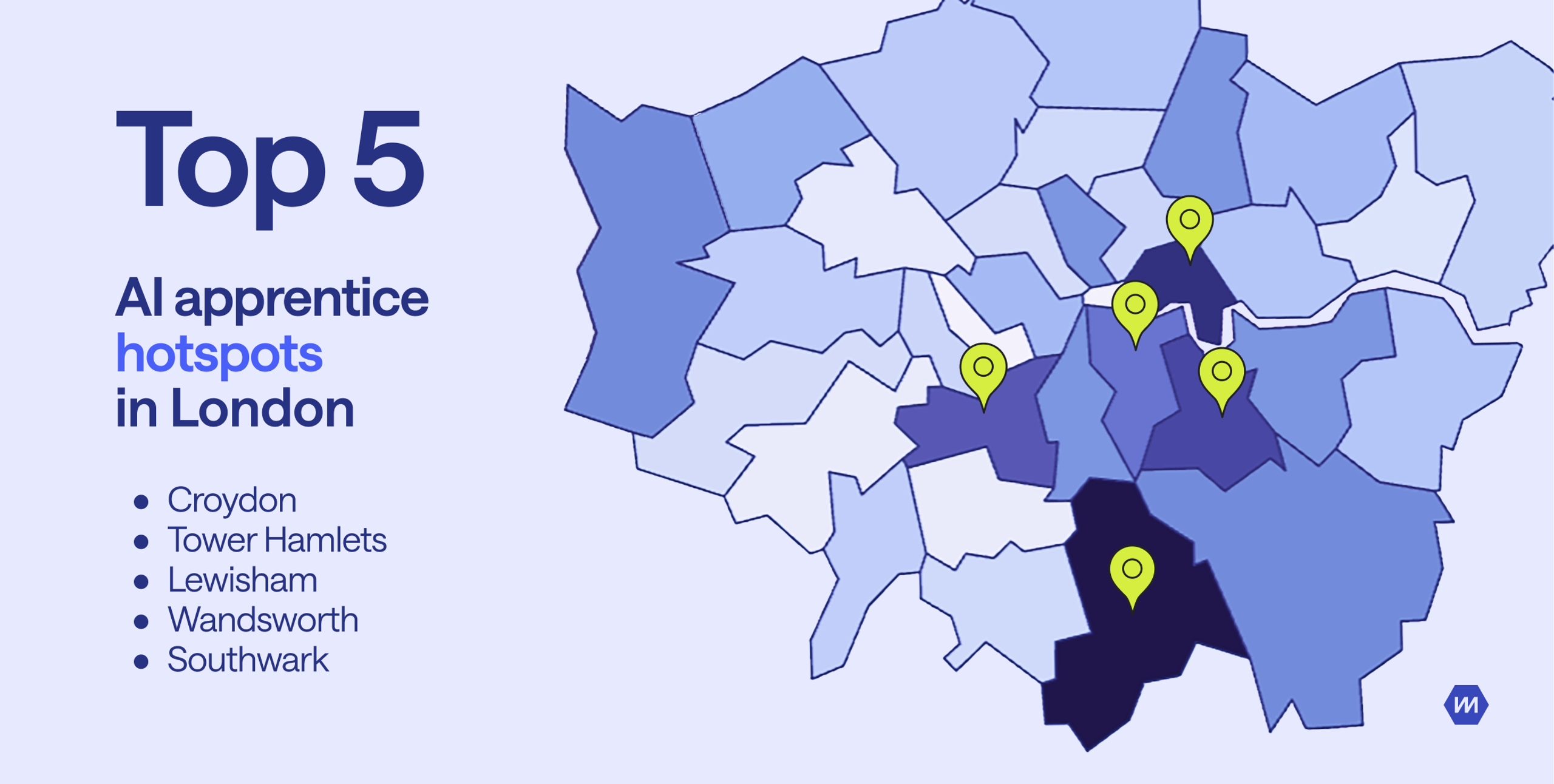
Meanwhile, the top London borough for AI apprentice talent is Croydon, followed by Tower Hamlets, Lewisham and Wandsworth.
The UK’s emerging AI workforce is also made up of a diverse mix of ages and genders. The gender split is nearly even, with 45% of AI apprentices identifying as female and 54% male – compared to the 22% of women working in AI roles in the UK as a whole(opens new window). The age range also spans from 19 to 71. This points to how workers at every career stage are embracing AI, from early talent to experienced workers seizing the opportunity to reskill.
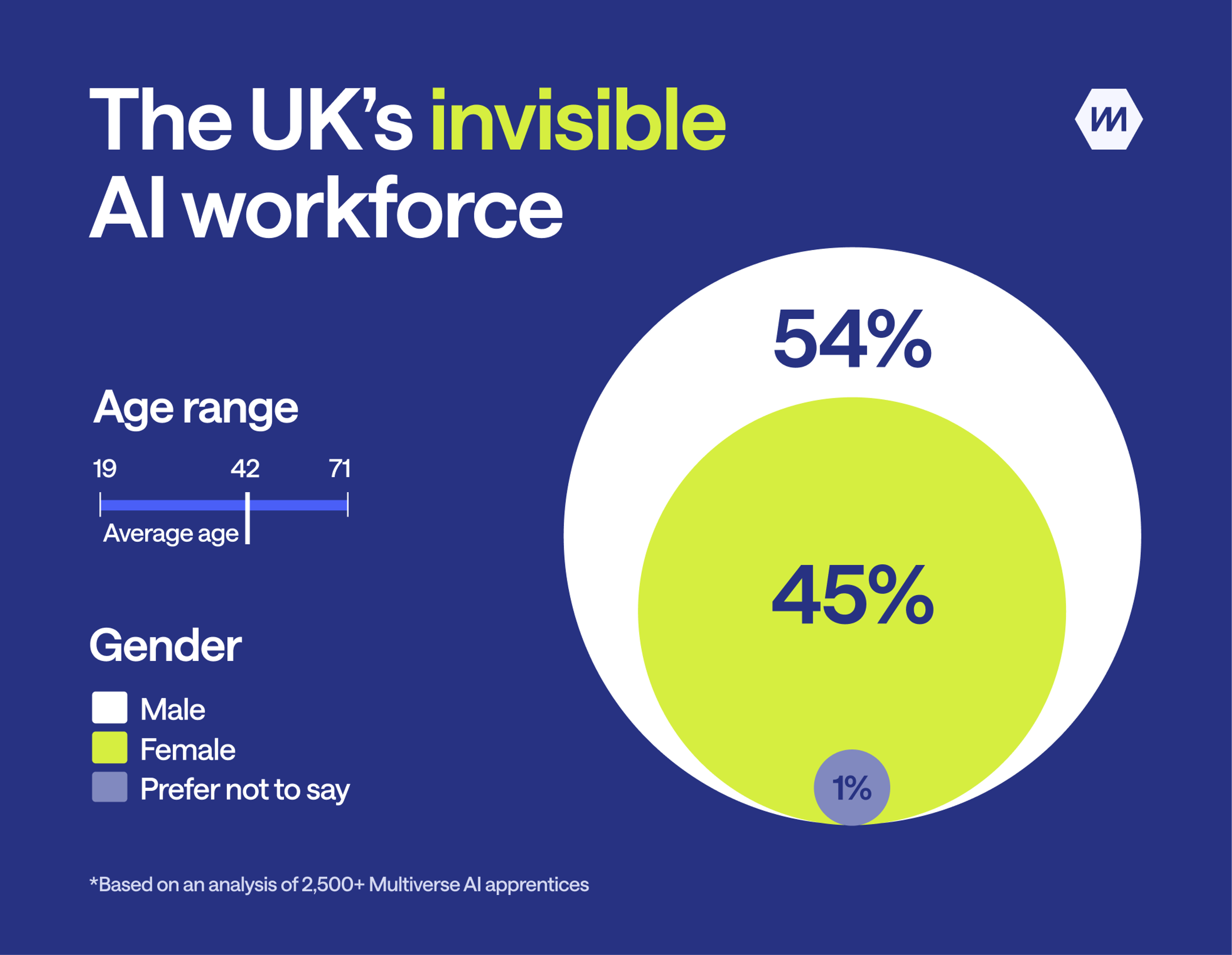
Anna Lazcano, a nurse at Barts Health NHS Trust, is building an AI solution that can interpret communications from intubated and tracheostomy patients using gesture tracking and speech-to-text technology. She said: "Effective AI solutions in healthcare have to be driven by frontline clinical needs. My experience in critical care means I understand the requirements of my patients -- and now AI skills have essentially given me a new clinical tool to address their needs."
Stephen Mansfield, a fundraiser at Mencap, has built an AI assistant that surfaces relevant information to respond to the 7,000 annual queries received to its Wills and Trusts information service, vastly speeding up the pace of response. He said: “I never thought I’d be building AI tools within my charity role, but I’m now using AI to improve the services we offer to people with a learning disability and their support networks. It’s opened up a new dimension to my career and is delivering real efficiencies for the organisation, meaning that we can reach more people with our service.”
Multiverse is the upskilling platform for AI and tech adoption, equipping the workforce to win in the AI era. Multiverse has trained more than 20,000 apprentices in AI, data and digital skills since 2016, and has committed to training 15,000 AI apprentices in the next two years.
Over 1,500 companies work with Multiverse to deliver applied learning that’s transforming the workforce at scale. Programmes are targeted at people of any age, role, location and career stage.
